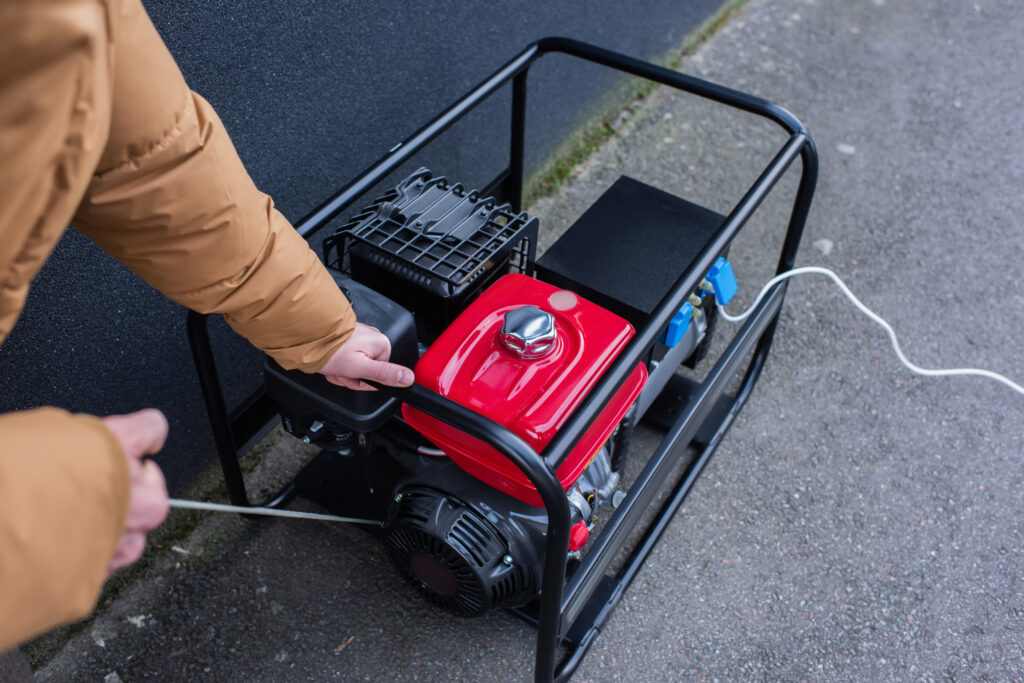Generators Are Useful—But Can Be Extremely Dangerous If Misused
Portable generators are a lifeline during power outages, keeping lights on, refrigerators running, and critical medical devices powered. But when used incorrectly, they can also become deadly. Each year, dozens of people die from carbon monoxide poisoning linked to generator misuse, especially during hurricanes, ice storms, and other extended outages.
Staying safe means knowing how to operate a generator properly and taking steps to protect your home and family every time you use one.
Never Use a Generator Indoors or in Enclosed Spaces
One of the most important safety rules is also the most commonly ignored: never run a generator inside your home, garage, basement, or even a covered porch. Generators emit carbon monoxide (CO)—a colorless, odorless gas that can kill in minutes.
Even partially enclosed areas can allow CO to build up to dangerous levels. Always place the generator outdoors, at least 20 feet away from windows, doors, and vents, and direct the exhaust away from your home and neighboring properties.
Install Carbon Monoxide Alarms
Make sure your home has working carbon monoxide detectors, especially near sleeping areas. If your generator is running for multiple days or nights, alarms can be your first—and only—warning that something is wrong. Test them regularly and replace batteries as needed.
Use the Right Extension Cords and Equipment
Only use heavy-duty, outdoor-rated extension cords with your generator. These cords should be long enough to place the generator at a safe distance from your home but capable of handling the power load without overheating.
Never plug a generator directly into a wall outlet—this practice, known as backfeeding, can send electricity into utility lines and endanger utility workers trying to restore power. If you want to connect a generator to your home’s electrical system, have a transfer switch installed by a licensed electrician.
Don’t Overload the Generator
Know the wattage limits of your generator and prioritize the most essential appliances. Overloading a generator can cause overheating and damage both the generator and connected equipment. Always follow the manufacturer’s instructions for safe operation and maintenance.
Fueling Requires Extra Caution
Turn the generator off and let it cool completely before refueling. Spilled gasoline on hot engine parts can ignite and cause a fire. Store fuel in approved containers, keep it away from living areas, and never smoke near the generator or fuel supply.
Keep It Dry and Grounded
Generators should never be used in the rain unless they are covered by an open, canopy-style structure that allows for proper ventilation. Running a generator in wet conditions increases the risk of electrocution. Always keep the unit dry and grounded properly to prevent electrical shock.
Plan Ahead Before the Next Storm
If you own a generator or plan to use one, learn how to operate it safely before an emergency hits. Read the manual, test it periodically, and keep fuel and cords stored safely and ready for use.
Generators can be lifesaving tools during power outages—but only when used with caution and care. With the right precautions, you can power through the next outage safely.


